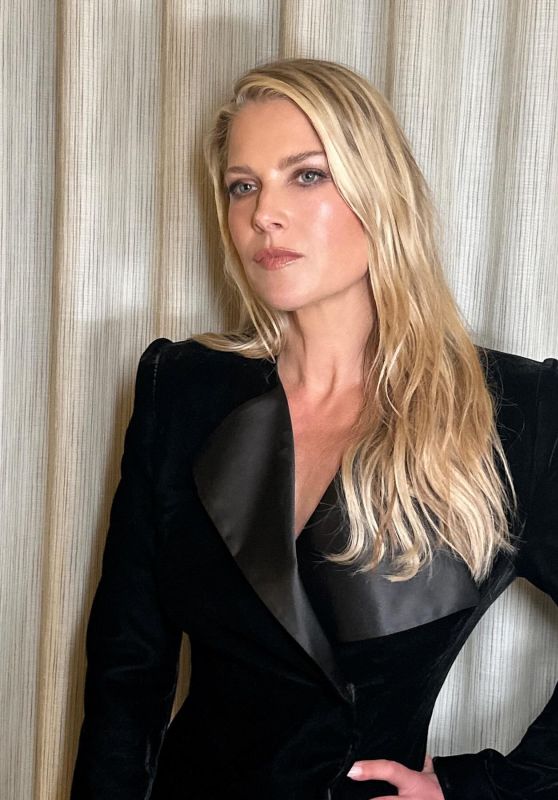It’s been 1,196 days since Netflix premiered, with little promotion and no reviews, an odd South Korean drama about economic desperation, bloodsport and childhood games that quickly became one of its most-watched series.
That’s a long hiatus — even by the erratic release standards of post-COVID, post-strike television — so I forced myself to do a full Squid Game rewatch, quite wary of how the series’ stealthy tonal twists would play with the pressure of expectations.
Squid Game
The Bottom Line Brace for less impact.
Airdate: Thursday, December 26 (Netflix)
Cast: Lee Jung-jae, Lee Byung-hun, Yim Si-wan, Kang Ha-neul, Wi Ha-jun, Park Gyu-young, Lee Jin-uk, Park Sung-hoon, Yang Dong-geun, Kang Ae-sim, Lee David, Choi Seung-hyun, Roh Jae-won, Jo, Yu-ri, Won Ji-an, Lee Seo-hwan, with Gong Yoo
Creator: Hwang Dong-hyuk
The pleasant shock was that the first season of Hwang Dong-hyuk‘s show was equally effective without the element of surprise. The dark social satire, bleak stench of despair and nostalgic undercurrent still entertained me completely. The one episode I initially disliked — the appropriately maligned “VIPs” — remained, for me, a cartoonish aberration.
The second season of Squid Game is a thorough letdown. It will be interesting to see whether the most disappointed viewers are those craving only a clever reproduction of what the first season did so well or those demanding additional depth in the series’ mythology and world-building. Because somehow, over seven episodes, the second season of Squid Game manages to do neither. It’s lacking in the fun and whimsy that kept the first season from wallowing in its backdrop of misery, and entirely lacking in new details or insights on the nature of the Game.
The second season of Squid Game is disappointing, but it isn’t awful, and it isn’t a violation of what was successful about the first season. (Netflix already did that with the competition series Squid Game: The Challenge.) In truth, it’s barely a season at all. It’s a seven-episode build-up to a concluding third season that’s expected in 2025 — a protracted bridge lacking the structural integrity to justify inevitable Empire Strikes Back comparisons from its defenders. Instead, it’s more like the glass bridge in “VIPs,” with Hwang and company stepping on a pane of untempered glass and falling through.
The second season, as with the first, solely written and directed by Hwang, begins where we left off in the first season finale: Lee Jung-jae‘s Gi-hun, soul crushed despite winning 45.6 billion in the Game, eschews a plane ticket to the U.S. to see his daughter and, instead, vows to find the elusive Front Man (Lee Byung-hun) and put an end to the Game for good.
The plot leaps forward two years. with Gi-hun is still searching for any way to access the Front Man or the Game. His primary target is the Recruiter (Gong Yoo), who in the first season found him on a subway platform, lured him into increasingly violent rounds of the game “ddakji,” and then presented him with the card to participate in the Game. The Recruiter is not easy for Gi-hun to find.
Meanwhile, police officer Jun-ho (Wi Ha-joon), last seen as he was shot by the Front Man, who turned out to be the cop’s brother, is alive and working a less demanding beat in traffic enforcement. In his spare time, he’s struggling to find evidence proving that there’s a Game out there in which ordinary people play childhood games to the death under the leering gaze of animal-masked VIPs.
Eventually, you know Gi-hun will make it back to the island and into the Game. You know that because it’s the only thing that makes any sense and because that’s what Netflix has been aggressively promoting. But the amount of time it takes for that reset to occur? Holy cow, it’s much longer than you’re expecting.
Squid Game‘s first season had its own deliberate pace Its pilot is more than half-finished before the first round of Red Light, Green Light, and then the second episode is essentially game-free. But that time is dedicated to making viewers understand the level of desperation felt not only by Gi-hun, but all of the characters, manifesting the contemporary economic inequality in South Korea.
The second season takes two full episodes to get back into the Game, but what that time establishes isn’t as universal as “Here’s a guy who has hit rock bottom.” It’s “Here’s a guy who wants season two of a TV show.” For two hours, it feels like Squid Game is setting the season up to have Gi-hun and Jun-ho — who met only briefly last season — come together to work in tandem. But by the third episode, Jun-ho is back to being a distraction. On my rewatch, I found that I remembered 90 percent of Gi-hun’s plot and 5 percent of Jun-ho’s plot. That persists here; the character is a momentum-killer and nothing else.
You know Gi-hun is getting back into the Game, and it’s negligent narrativizing to have it take so long for him to get there. But once he gets there, it forces a fundamental shift onto the Game that the series isn’t smart enough to handle.
The fundamental irony of the Game, as presented initially, is that it’s grotesque, but in an unfair world it’s fundamentally fair. The Front Man turns a blind eye to black market organ harvesting, but what really pisses him off is when he learns that some of the pink-clad guards have been telling a participant which games are upcoming.
But returning Gi-hun to the Game eliminates the equity and transforms it from a 456-player competition in which each player is the hero of their own tragic story into a 1-person, elaborately staged lesson in which 455 players are there to participate in and be killed for Gi-hun’s punishment. Is that fittingly nihilistic? Sure! Is it nearly as satisfying? Not even close. The other individual participants get no flashbacks this time around and they barely get stories. They’re tragic character types: a former soldier (Park Sung-hoon’s Hyun-ju) looking to complete her gender transition; a mother (Kang Ae-shim’s Geum-ja) and son (Yang Dong-geun’s Yong-sik) looking to pay off his gambling debts; a former crypto-bro (Im Si-Wan’s Myung-gi) who went belly-up and his ex-girlfriend (Jo Yu-ri’s Jun-hee), who is also pregnant.
Instead of laying the foundation for character relationships built within the game, the second season is filled with pre-existing relationships — including the one between the rapper (Choi Seung-hyun’s Thanos) bankrupted by Myung-gi’s crypto scheme and Jung-bae (Lee Seo-hwan), another of Gi-hun’s friends from the outside. The drama is built-in and therefore less earned.
The Game, once Gi-hun is there, is very similar. There’s no evidence that anybody has given the M.C. Escher day-glo set a fresh coat of paint, and the new games themselves feel barely on-theme. At some point in the first season, everybody banters about the countless childhood games that could be played next, but even with so many to choose from Hwang already feels stretched thin.
By that standard, you almost understand why the Game becomes an afterthought in the season’s new evolution. Hwang clearly got the message that people didn’t love the VIPs themselves and they’re nowhere to be seen this season. Somehow, though, he also got the idea that what people enjoyed most was the part of the pilot when players voted on whether or not to end the game. A new rule has players voting every single competition, and the voting process absolutely takes as much screen time as the games themselves, with no comparable payoff. If I’m being generous, I can explain how it becomes a commentary on how frequently democracy forces people to vote against their interests, either as individuals or a collective, which can be applied to South Korea but really any democracy. It’s a point that’s made and then repeated into tedium.
Democracy, the series argues, is grim. And everything within the show has become grim. Lee Jung-jae won an Emmy for the first season in a role characterized by live-wire dexterity. Everything in Lee’s performance was big, from broad comedy to broad tragedy, reconciled perfectly by the end. While Lee is a good enough actor to make Gi-hun’s one-note haunted aspect a fitting development of the character, he’s less interesting as a result. Other than Choi, who makes Thanos wildly unpredictable and vibrant (if never close to a real person), every new character feels like a lesser replacement for somebody we lost the first time around and the series suffers hugely from the absence of O Yeong-su’s wily Il-nam, Jung Ho-yeon’s deeply tormented Sae-byeok and more.
Of the new faces, Jo and Kang come close to making their characters memorable. And if you don’t have memorable characters, there’s no impact in killing them off. So, up until the sixth episode — for me, the only new episode that matched the visceral effect of the first season — there’s lots of bloodshed, no impact.
That’s without getting into the questionable choices related to cis actor Park Sung-hoon playing a thinly developed trans character. I can completely accept and acknowledge that simply including a trans character at all for a drama produced in South Korea is boundary-pushing in a significant way. But for an international television show in 2024, there are basic expectations that it falls short. Both things can be true.
Similarly, it can be true that most of the lessons that Hwang appears to have taken from the first season have been misapplied, but I remain curious as to whether most of the more creative elements and format-shaking twists and revelations might be saved for the the third season. What was primally exciting about the series’ premise hasn’t been lost entirely (the juice generated by the sixth episode confirms that); the style remains intact, if stagnating; and Lee’s performance remains sturdy, if less entertaining than what attracted audiences in the first place.
It’s not a fundamental level on which Squid Game is broken, but season two simply doesn’t work.




















 English (US) ·
English (US) ·